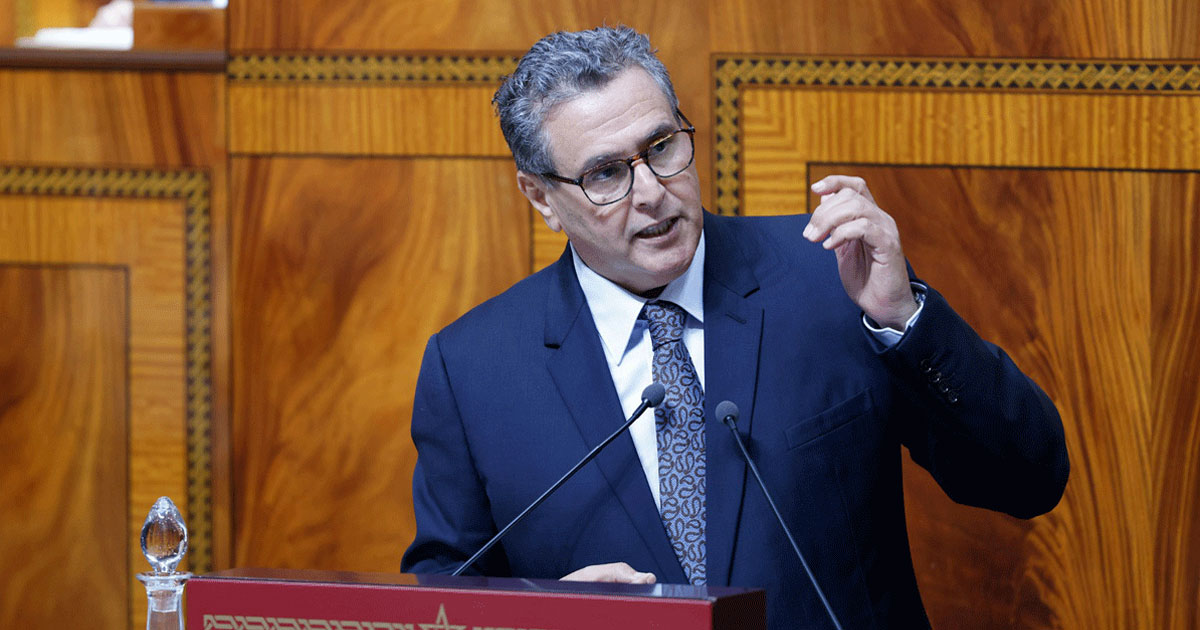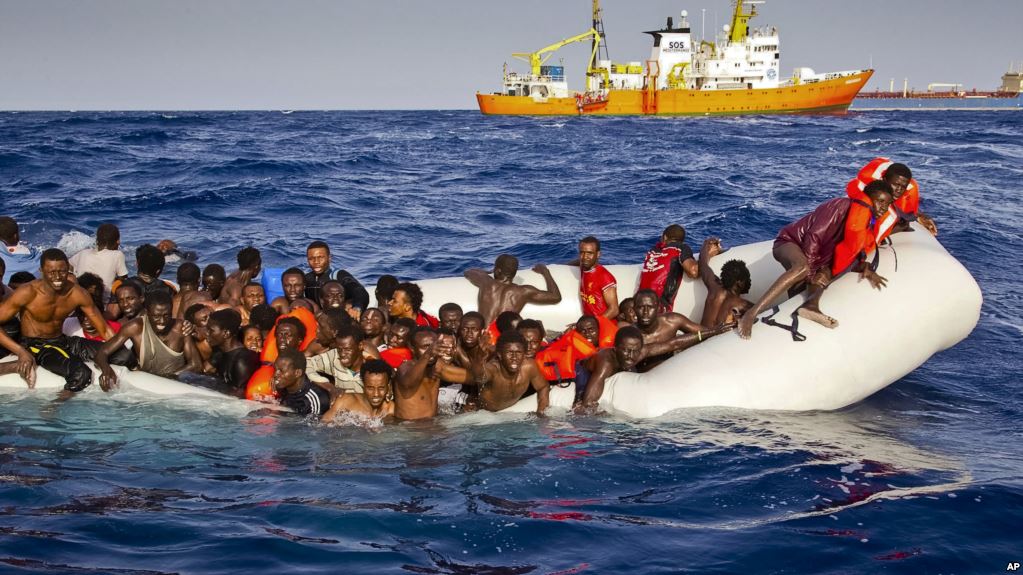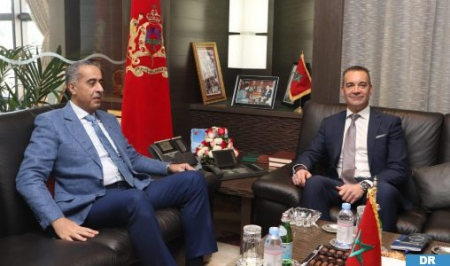Head of the Moroccan government Aziz Akhannouch defended the achievements of his government at half-term, focusing on social projects including direct subsidies, mandatory health coverage, and the reform of the health and education sectors.
Akhannouch-led government has come under fierce criticism by the opposition which decry a surge in unemployment and a lack of communication by government members.
Speaking before MPs, Akhannouch started with voicing satisfaction at the achievements of Morocco’s diplomacy in gathering support for the kingdom’s territorial integrity and sovereignty over the Sahara.
Afterwards, he highlighted the achievements in rolling out well-fare state projects. During the first thirty months of the government’s mandate, mandatory health insurance was offered to 10 million Moroccans, including 4 million needy individuals whose contributions are paid by the state for a total amount of 9.5 billion dirhams annually.
The government has also started targeting subsidies, offering cash handouts to 3.5 million needy families, he said, noting that this aid would cost the state budget 25 billion dirhams annually.
At least 9.5 billion dirhams has been allocated to housing aid to help families acquire their own homes, in a move that is intended to benefit 110,000 families annually, he said.
On education, the government has allocated a colossal budget of 74 billion dirhams as it presses ahead with a vast reform program that spans from kindergarten to the university, he added.
Improving health services is also of paramount importance as the government builds multiple new university hospitals and boosts training to bring the number of medics to a satisfactory level compatible with WHO standards, he said.
In 2024, 30.4 billion dirhams has been allocated to upgrading the health sector including wage hikes to medics.
Akhannouch also pointed to other major reforms by his government mentioning agriculture which has faced drought headwinds but continues to ensure Morocco’s food sovereignty.
Morocco has also tapped into the LNG market and plans to further diversify its energy sources and reduce its carbon footprint to achieve the goal of generating 52% of its electricity from renewables by 2030.
Public investments have been increased to 335 billion dirhams to boost domestic demand and create jobs, he said.
Infrastructure investments, including high speed rail connections, new stadiums, and energy projects would require investments worth 200 billion dirhams, he stated further.
Despite the rise in subsidies and public investment, Morocco could contain its budget deficit and retract it to 4.4% in 2024.
As for growth, it has improved to 3.2% in 2023 from 1.3% in 2022, despite drought and imported inflation, he said.



